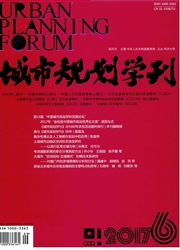

 中文摘要:
中文摘要:
职住平衡有利于减少通勤作为城市规划中的一个传统理念,其有效性正受到实证研究的挑战。基于对上海的问卷调查数据.从不同角度构造了3个职住平衡指数,运用统计方法检验职位平衡与通勤时耗之间的因果关系。当职住平衡像通常一样被定义为总量职住比率时.职住平衡对通勤时耗有一定影响,但显著性较弱。当采用实际职住比率即区域内有就业岗位的居民中有多大比例在本区就业这一指标时,职住平衡显示出对通勤时耗的显著影响。如果把职住平衡界定为它希望达到的目标即职住临近.职住平衡则显示出对通勤时耗极其显著的影响,而且显著性远远高于其它因素。上述结果支持了职住平衡是影响通勤时耗重要因素这一传统理念,但也启示人们.从多个角度来测度和调控职住平衡是科学决策的基础。
 英文摘要:
英文摘要:
That job-housing balance helps to reduce commuting travel is considered a traditional idea in the field of urban planning, while its effectiveness is being challenged by empirical study recently. This article constructs three job-housing balance indices from different angles and uses statistical method to test the causal relationship between job-housing balance and commuting time based on the questionnaire survey in Shanghai. When job-housing balance is conventionally defined as job-housing ratio, job-housing balance has a certain influence on commuting time, but the significance is weak. When the proportion of the employed residents work ing in local district is used as the index, job-housing balance shows a significant influence on commuting time. If job-housing balance is defined as the objective it want to achieve, namely the nearness of jobs to housing, jobs-housing balance shows extremely remarkable influence on commuting time, and the significance of it is the highest among the three. These results support the traditional idea that job-housing balance is an important factor influencing commuting time. Yet it also suggests that measuring and monitoring job-housing balance from multiple perspectives is the foundation of scientific policy-making.
 同期刊论文项目
同期刊论文项目
 同项目期刊论文
同项目期刊论文
 期刊信息
期刊信息
